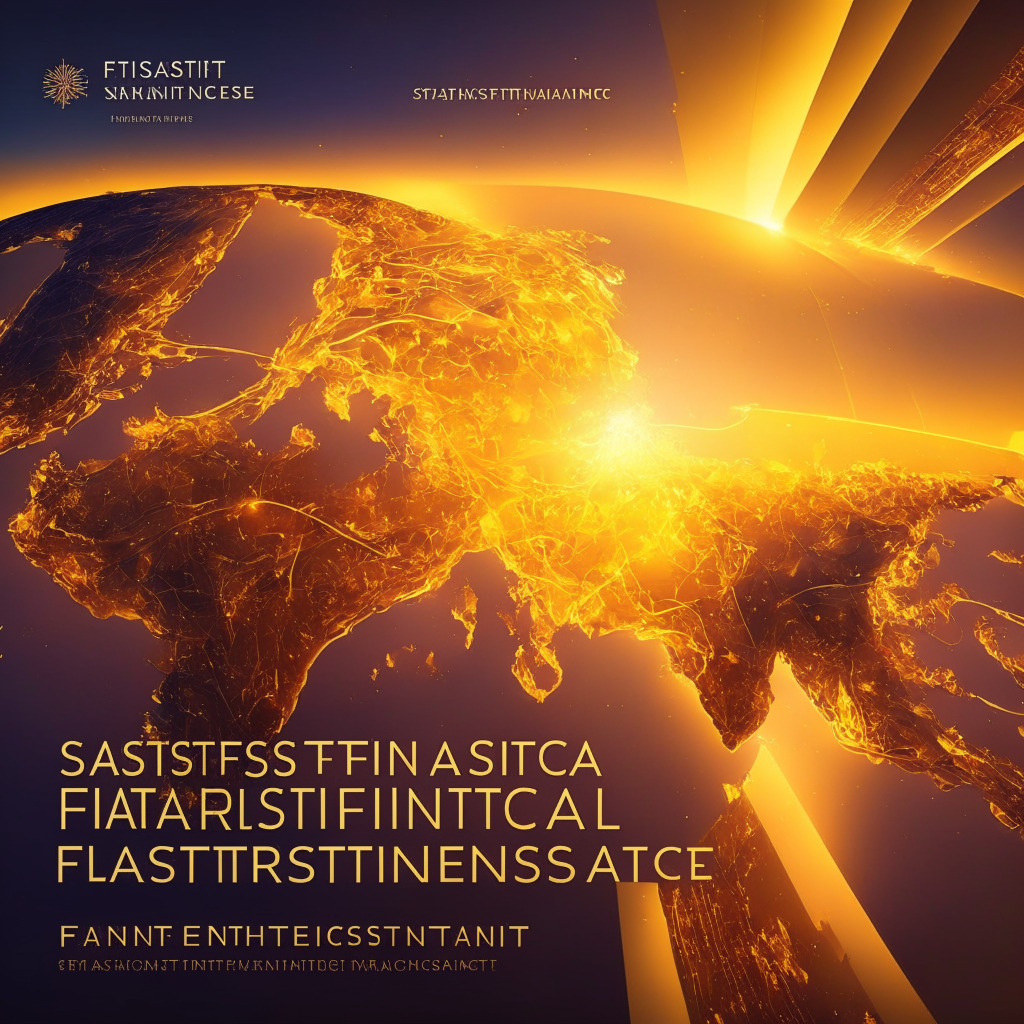Qatar
Search Results for: FATF
Bitcoin’s Critical $26,600 Support Level Amid Market Shifts and Regulations
Bitcoin’s journey towards $27,000 has prompted focus on a critical support level at $26,600, which will influence its short-term price action. Market shifts, the EU’s MiCA framework, UAE’s AML measures, and Hong Kong’s crypto policy are vital factors impacting the market and Bitcoin’s key support level.
BitFlyer Adopts Stringent AML Measures: Balancing Security, Innovation, and Transparency
Japan-based cryptocurrency exchange bitFlyer has adopted stringent anti-money laundering measures to comply with FATF’s “Travel Rule” for sharing information on transfers. Enforcement of these measures aims to promote transparency and reduce illicit activities in the cryptocurrency market.
Crypto Market Decline Amid UK Inflation Surge and Binance Allegations: Navigating Complexities
UK inflation hit 6.8%, Bitcoin fell under $27,000, and Binance faced allegations of commingling customer funds with company revenue. Japan prepares stricter anti-money laundering measures, while Cardano’s ADA sees whale accumulation. These complexities impact the crypto market, highlighting a battle between transparency and skepticism.
Japan’s Stricter AML Measures: Balancing Crypto Regulation, Privacy, and Innovation
Japan implements stricter anti-money laundering measures, including the “travel rule” from FATF, to align with global standards. This aims to create a safer crypto environment but faces skepticism over potential privacy infringement and hindering industry innovation. Finding a regulatory balance is crucial for maintaining a thriving crypto market.
Pakistan’s AI Push Amidst Crypto Ban: Balancing Innovation and Regulation
Pakistan’s Ministry of IT & Telecom drafts national AI policy to transform into a knowledge-based economy by investing in AI and related technologies. However, a blanket ban on cryptocurrencies brings a debate if the country is missing out on blockchain potential in essential sectors.
Hong Kong’s SFC to Accept Crypto Trading Platform Applications: Pros, Cons & Implications
Starting June 1, Hong Kong’s Securities and Futures Commission (SFC) will accept applications for crypto trading platform licenses. The guidelines emphasize platform operators’ responsibility for due diligence and maintaining sufficient capital. Retail investors can access licensed platforms provided operators assess their risk understanding. Requirements for fining platforms breaching anti-money laundering regulations have been clarified, effective from June 1.
Crypto Regulation Showdown: Balancing Innovation & Investor Protection in a Decentralized World
The International Organization of Securities Commissions (IOSCO) seeks public comment on policy recommendations for crypto and digital asset markets, addressing market abuse, client asset protection, and disclosures. Their Fintech Task Force aims to establish a regulatory agenda for fintech and cryptocurrency industries, with oversight from the Monetary Authority of Singapore. Recent events highlight the need for increased regulation, and IOSCO’s initiative seeks to create a more secure environment in the digital asset industry.
US Debt Ceiling Stalemate: Implications for Bitcoin and Global Crypto Adoption
Bitcoin’s price hovers near $26,800 amidst uncertainty surrounding the US debt-ceiling stalemate, raising questions about the impact on cryptocurrencies if the government defaults. As centralized institutions face challenges, the role of cryptocurrencies as a hedge in developing nations gains attention, fueling discussions around their real-world utility and inherent value.
Cryptocurrency Adoption Amid Global Economic Unrest: Analyzing Pakistan, Nigeria, Turkey, and Japan
The cryptocurrency adoption landscape is evolving, with countries like Pakistan, Nigeria, Turkey, and Japan experiencing increased interest in digital assets to combat inflation, currency instability, and centralized financial control. Widespread adoption of decentralized digital assets may be imminent as cryptocurrencies offer insurance and hedge qualities amid global economic challenges.
Ledger Wallet Recovery Debates & Exciting Developments: A Busy Week for Crypto Enthusiasts
This week in crypto, Ledger introduced a wallet recovery service, ETH staking demand soared, Tether invested in Bitcoin, and Samsung partnered with the Bank of Korea for CBDC research. Additionally, Ripple acquired Metaco, and a Uniswap survey highlighted the need for DeFi simplification.
Pakistan’s Crypto Dilemma: Government Ban vs Soaring Adoption Rates
Pakistan’s government hardens its stance on digital assets, with the Minister of State for Finance announcing that cryptocurrencies will “never be legalized.” Amid Financial Action Task Force concerns, the State Bank of Pakistan and the IT Ministry work on banning cryptocurrencies despite their growing popularity, as annual crypto trading volume reaches $25 billion.
Bitcoin Struggles at $27,500: Tether’s Impact, Korea’s Regulations, and Pakistan’s Ban
Bitcoin struggles to overcome the $27,500 resistance level amid a downward trendline, while Tether plans to purchase Bitcoin to diversify its reserve holdings backing USDT. Meanwhile, Korean politicians unite for crypto regulations, and Pakistan enforces a ban on cryptocurrency services due to FATF requirements.
Pakistan’s Crypto Ban: Safeguarding Economy or Hindering Financial Freedom?
Pakistan’s Senate Standing Committee on Finance seeks to ban cryptocurrency use amid economic difficulties, with inflation hitting 36% in April 2023. The country’s financial policymakers view cryptocurrencies as high-risk, fearing potential financial terrorism and further strain on IMF relations. Critics argue that cryptocurrencies can act as a hedge against inflation in economically unstable nations.
G-7’s Commitment to Crypto Regulations: Balancing Innovation and Financial Stability
The G-7 countries announced their commitment to enforcing forthcoming cryptocurrency regulations proposed by the Financial Stability Board (FSB) and the International Monetary Fund (IMF), aiming to boost confidence in the growing crypto industry and create a safer, more transparent environment for all participants.
Balancing Innovation and Regulation: The Crypto Industry’s Struggle for Stability and Growth
This article discusses the ongoing debate between promoting innovation in blockchain technology and cryptocurrencies while ensuring regulatory oversight for safeguarding individual and societal interests. Striking a balance between privacy and accountability is crucial in shaping the future of crypto regulation and the industry’s healthy development.
South
South Korea’s Rep. Kim Nam-kuk is under scrutiny for withdrawing 800,000 WEMIX tokens, raising questions on potential conflict of interest and the need for clear regulations in the virtual assets market. This incident highlights the urgency for regulatory clarity and transparency in the rapidly evolving crypto landscape.
















